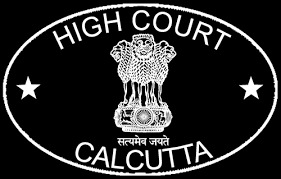K. Kannan, J.@mdashAll the six appeals are connected, three at the instance of the insurer denying liability and three at the instance of claimants seeking for enhancement of compensation. Three persons were alleged to have died in an accident occurred on 23.05.2000 when they were travelling in a scooter and involved a collision with the insured''s truck. Two of them died on the spot and another was alleged to have been under treatment for more than a month and succumbed to injuries ultimately on 4.7.2000.
2. There were no eye witnesses to the accident and all the three persons, who must have immediately known of the details had all died and therefore, the case stayed for consideration regarding negligence on the evidence of the driver of the vehicle. He was examined as RW-I and he had stated that the accident took place only by a negligent driving of the scooterist. The accident that causes instantaneous death for two persons and results in death of yet another person after some time due to grievous injuries cannot be the result of any careful driving by the truck driver. I cannot accept the evidence of the driver that he had been careful in driving but still the accident took place. Careful driving cannot result in death. It must only be taken as a res ipsa loquitur situation of making the driver of the truck liable for what it ultimately resulted out of the accident. The Tribunal already held the issue to be so and there is no scope for taking a different view. I will, therefore, reject the contention of insurance company that there was no negligence on the part of the truck driver.
3. As regards the quantum, the claimants in FAO No. 632 of 2003 were a widow and father of the deceased person, who was said to be 27 years and who was a goldsmith. With no proof of income, the Tribunal took his income to be Rs. 2,000/-, took the contribution to the family as Rs. 1300/- and adopted a multiplier of 16. At the relevant time when (he accident had taken place in 2000, the assumption of income at Rs. 2,000/- for a goldsmith was just and cannot be said to be either low or high. I would retain the same. 1 would provide for a contribution of 2/3rd to the family and take the annual dependency to be Rs. 16,000/-. He was aged 27 years and the annual income being less than Rs. 40,000/-, I would adopt a formula prescribed under Schedule II and take a multiplier of 18. The extent of dependence would be Rs. 2,88,000/-. I would provide for an additional amount of Rs. 10,000/- for loss of consortium to the young widow. I would add Rs. 2500/- towards loss to estate and another Rs. 2500/- for funeral expenses. The amount that will become payable would be Rs. 3,03,000/-. The Tribunal has awarded a sum of Rs. 2,56,000/-. The sum in excess of what has already been awarded shall bear an interest @6% from the date of the petition till the date of payment and shall be received only by the widow. The apportionment for the amount as already prescribed by the Tribunal in the award between the widow and the father is retained. The cross appeal shall stand allowed to the above extent.
4. As regards the claim in FAO No. 633 of 2003, the deceased was said to be an agriculturist aged 40 years. The Tribunal took the income to be Rs. 2500/- and provided for a dependence of Rs. 1700/- per month while adopting a multiplier of 16. In case of agriculturist, it must be taken that the estate is still available and the compensation is awarded only by factoring the value of the supervisory skills that he can bring to his property. The Hon''ble Supreme Court has held in
5. Since the accident had taken place about 10 years earlier, I would provide for 75% of the amount determined for the wife to be released if it has not already been done and provide that for the remaining amount of 25%, it will be split into five equal shares and kept in a deposit for the first share for one year, for the second share for two years and so on upto 5 years for the 5th share. The respective amounts on the maturity of every year shall be paid to the widow. As regards the shares of the minors, they will be retained during the minority in deposits in a Nationalized Bank and the amounts coming through accruals of interest shall be paid to the mother as a guardian for the expenses of minor children. The money shall be paid to the respective children on attaining majority in full.
6. The cross appeal in FAO No. 633 of 2003 shall stand allowed to the above extent.
7. In the cross appeal in FAO No. 634 of 2003, the deceased was again an agriculturist aged 45 years and the claimants were widow and children and parents. With no positive or clear evidence about the supervisory skills, I would take the contribution through such extent of agricultural land to be Rs. 3,000/- per month and provide for a 1/5th deduction for personal expenses. Having regard to the large family he was supporting, I would take Rs. 2400/- as the monthly dependence and the yearly dependence would be Rs. 28,800/-. He was aged 45 years, therefore, 1 would take a multiplier of 14 and take the extent of loss to the family to the tune of Rs. 4,03,000/-. I will provide for Rs. 5,000/-towards loss of consortium to wife and Rs. 5,000/- each of children towards loss of love and affection. I would provide for Rs. 2500/- towards loss to estate and Rs. 2500/- towards funeral expenses. In all the amount that will become payable would be Rs. 4,23,000/-. The Tribunal has awarded a sum of Rs. 3,63,000/-. The amount in excess shall bear interest @6% from the date of the petition till the date of payment.
8. The Tribunal has provided for medical expenses of Rs. 50,000/- and the contest on this aspect by the learned Counsel appearing for the Appellant is that there was no proof of at all for the expenses and the Tribunal had arbitrarily taken the said sum. The Tribunal has made provision for Rs. 50,000/- for 1-1/2 months hospitalization. I do not feel inclined to interfere with the same although there was no evidence, only by the fact that a Tribunal Judge at his level would know the actualities of life and if an assumption is made, I will not interfere with the same.
9. It is contended by the learned Counsel for the insurance company that the cause of death as shown in the document is that he died of renal failure and there is nothing to show that he died on account of accident. I would not accede to this contention for the evidence of the wife was that after the accident he was taken to the hospital and was in continuous treatment being an inpatient and ultimately succumbed to the injuries. I have gone through the evidence and it has not even been suggested to the witness that his death was on account of some other factor. On the other hand her evidence was that he had spent Rs. 2 lacs on treatment and suggestion was that he died due to natural causes. If between the death and the accident, there had been no other intervening factor and a situation regressed gradually to result in death, I would take the most proximate cause for the death as the accident injury itself. It is a well established theory in tort called talem qualem rule, also known as egg-shell skull rule that one is require to take the victim as one finds him (see: Dalian v. White and Sons (1901)2 R.B. 669; Bourhill v. Young (1943) A.C.C 92 (H.C.). In other words, it is to the effect that the Court has to take the quality of health of the person as it is and cannot conjecture that death could have been due to any other reason. Even in a case where the person has a propensity for ill-health but ultimately it was the accident that precipitated the death then it should be taken that he died only due to the accident.
10. Since the accident had taken place about 10 years earlier, I would provide for 75% of the amount determined for the wife to be released if it has not already been done and provide that for the remaining amount of 25%, it will be split into 4 equal shares and kept in a deposit for the first share for one year, for the second share for two years and so on upto 4 years for the 4th share. The respective amounts on the maturity of every year shall be paid to the widow.
11. The cross appeal in FAO No. 634 of 2003 is allowed as above.
12. The appeals filed by the insurance company are consequently dismissed.

